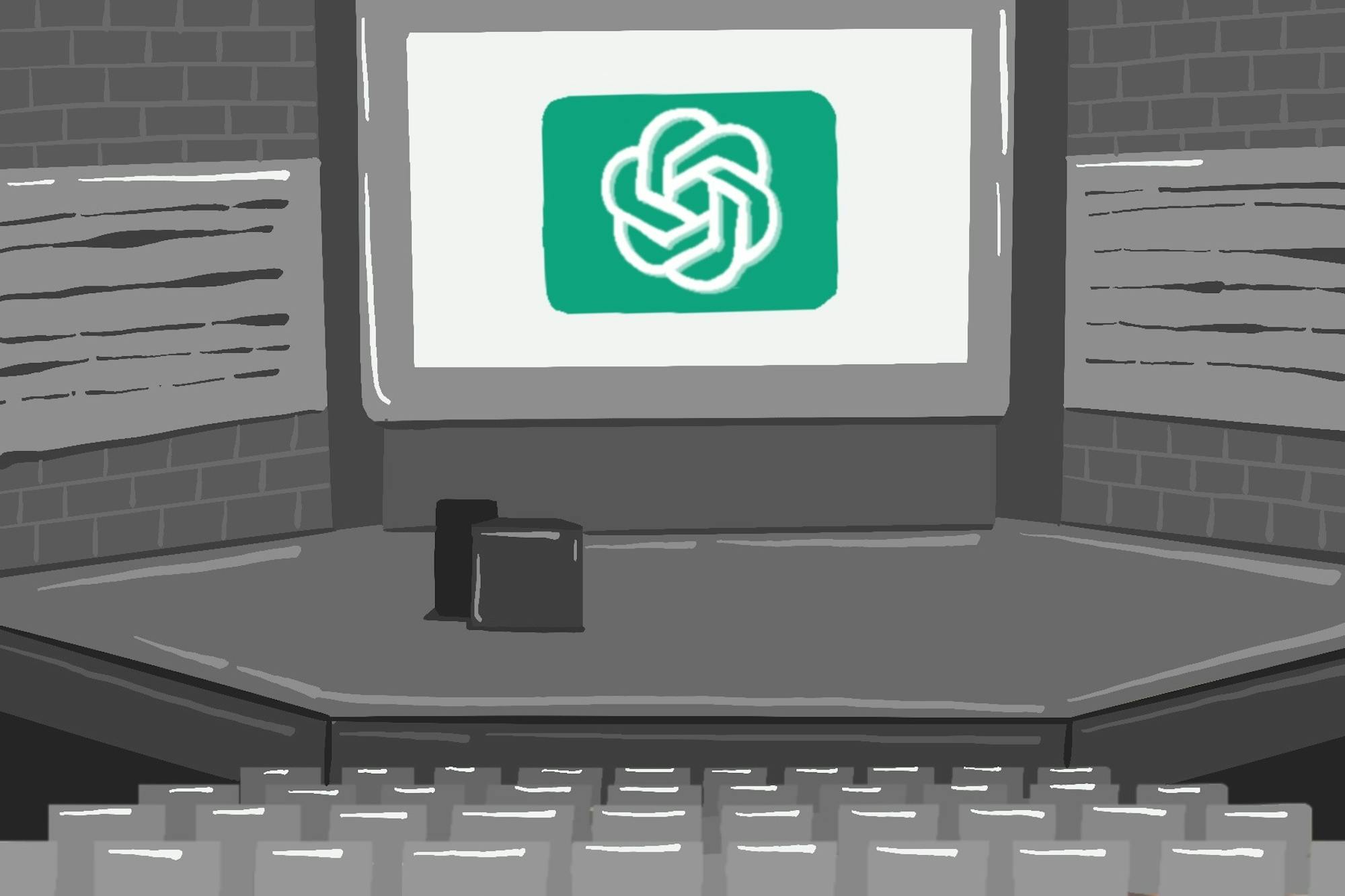It is no secret that OpenAI’s artificial intelligence chatbot, ChatGPT, is transforming the academic landscape — especially due to its applications in coding and writing. Only a few months after its release, ChatGPT’s usage has become widespread, and Dartmouth professors are feeling the pressure to make a decision on the new technology’s role in the classroom.
Quantitative social sciences professor Feng Fu said he welcomes ChatGPT with open arms, allowing his students to “use it to what extent they want,” as long as they “provide the prompt history as part of their assignment.”
“ChatGPT is just a semantic search engine — to get it to do really awesome work, you first have to write a really good prompt,” Fu said. “If we keep everything transparent, there is no such potential for cheating. It becomes more about how we ask questions: We have to provide it with the substance, and it will help polish or streamline the argument.”
However, other professors, such as government professor Jeremy Ferwerda, said they feel wary of ChatGPT’s impacts on examinations.
“I think it changes certain types of assessments … certain types of questions are not practical in the ChatGPT world, like short identification questions,” he said. “Assessment methods will have to change, which for now means a shift to handwritten [exams] as an emergency response.”
Ferwerda also acknowledged that ChatGPT presents “a clear advancement in tech that will boost productivity,” yet he added that similar to other developments in technology, it will cause “disruptions.”
“It’s not something you can stop and we sort of have to adapt to it — there’s no putting the cat back in the bag,” he said.
For English and creative writing professor James Dobson, adjusting to the presence of ChatGPT requires a fundamental rethinking of how professors are teaching and why they are assigning their students certain tasks.
“We need to focus on creating an environment where students want to engage,” Dobson said. “I’ve talked to a lot of faculty who are deeply concerned about it — and my question to them is always, ‘Why are you assigning writing if you’re concerned that your students are committing academic misconduct? And are you properly providing them with the feedback and attention they need to feel like that writing is meaningful for them?’”
As the professor’s opinions on the multifaceted impact of ChatGPT varied, so did their methods of adapting to ChatGPT’s presence in the classroom.
Ferwerda said that a shift in the academic model will be necessary as the capabilities of AI continue to expand.
“Many responses [to ChatGPT] discount whether this tool is really a threat to traditional instruction,” he said. “[Open language software] might become [more] capable in a couple years, and we have to think about what that means for what we assess and what skills we are trying to impart.”
Going beyond just present-day students, Ferwerda said he is particularly concerned about the impacts ChatGPT will have on the education of middle and high school students down the line.
“My biggest concern is actually not current [college] students, but when people use [ChatGPT] in middle or high school — what sort of research or writing skills they will have,” Ferwerda said. “We’re asking people not to use it for certain tasks, but we’re assuming a set level of writing or analysis ability, and that may change as people are outsourcing that earlier in their education.”
Fu, however, said that he thinks ChatGPT and other open language models could also act as “a tremendous equalizer,” especially in technology.
“It gives such knowledge to everyone… who may be scared of coding or programming,” he said. “They don’t have to chase someone to ask questions. It’s a tremendously useful tool, like a calculator.”
Dobson’s opinion about ChatGPT lies somewhere in between Fu’s argument for complete integration of the software and Ferwerda’s hesitancy and call for assessment changes. More specifically, Dobson argued against “knee jerk responses” to ChatGPT.
“Either adding [ChatGPT] to all of our classes or developing AI-proof assignments are both not correct positions,” Dobson said. “There are certainly places for that particular tool. There’s no escaping them — we have to learn to live with them, and maybe hesitate before we run into using those tools.”
Considering that it has been less than a year since the release of ChatGPT, it’s unclear how it will change the landscape of academia, but it is certain that Dartmouth will somehow have to evolve.
As Ferwerda put it, “It’s kind of a scary, uncomfortable conversation without clear answers right now, but having these discussions should be on the table for the institution.”




